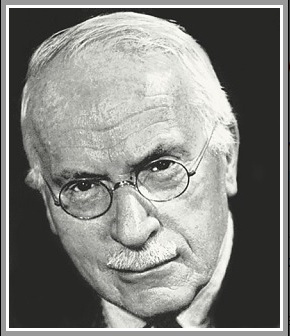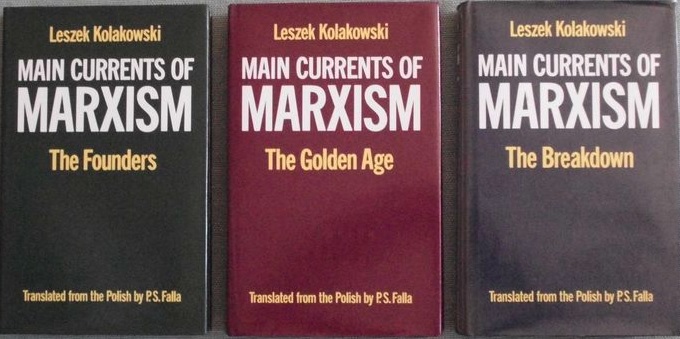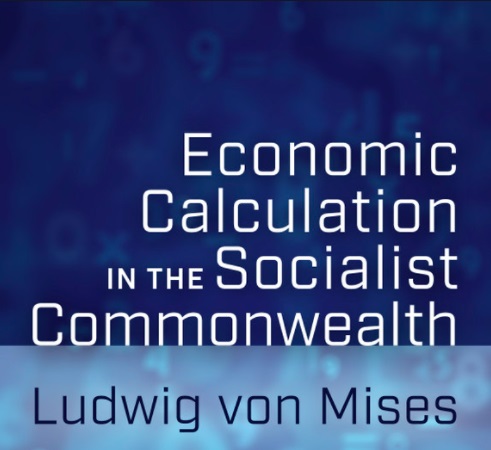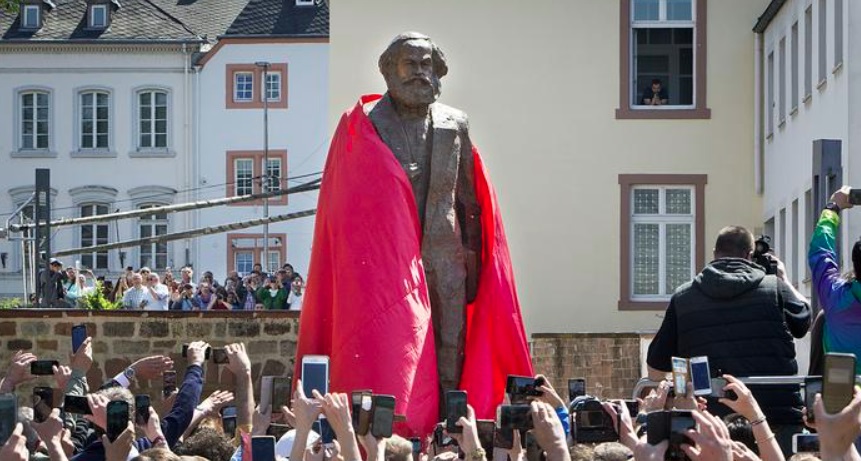Ideologies possess us
Ideas do not die: they my hibernate, they may go underground, they may mutate or metastasize, adapting to new circumstances, adopting suitable trains of thoughts from other ideas, stripping themselves of some of the old ones. Yet, once they are born, they are immortal. What is more, though ideas originate in human minds, paradoxically, once they are born, as Carl Gustav Jung famously said, it is not people who have ideas; people are possessed (obsessed) by ideas.
It is the peculiarity of the human mind to create ideas about the world, life, natural and social phenomena. These can be channelled in the form of a religion or ideology or a mixture of the two, never mind the denominations. A thought has a life of its own and starts growing, ramifying and developing, now due to clashes with real, palpable problems, now due to clashes with other ideas, beliefs, thoughts. A thought evolves in the process, and at times it is more real than reality itself in that a man who believes in dragons will spend his lifetime in pursuit of them: a belief will control his activities.
Beliefs, philosophies, ideologies – you name them – are there to explain the world and to provide guidelines. A human being needs guidelines: he needs to know whether it is good or bad to lie, to cheat, to steal; whether it is mandatory to lie to some, to tell the truth to others; whether it is prudent to lie under these, but be veracious under those circumstances. A human being needs to know what is worth striving, fighting, or dying for. And a human being has little time and little capability to solve each and every problem; instead, he prefers to rely on recipes of conduct that are rooted in an ideology. That is why ready-made sets of rules and values are in such demand.

Eternal Marxism
Marxism is one of the many ideologies that explain the world and provide guidelines. It traces its origins back to the 19th century. It was not a birth of a star but rather a transmutation and coalescence of earlier ideologies: German ideal philosophy (Georg Wilhelm Friedrich Hegel), from which it took dialectics, French utopian socialism (Charles Fourier, Henri de Saint-Simon), from which it took the social concerns, and English classical economics (David Ricardo, Adam Smith), from which it took the economic thought.
In the age of thriving industrialism and the rapid development of the sciences Marxism worked out an appeal that was suited to the people of the epoch: it claimed to have discovered scientific therefore immutable and infallible laws governing the life of human societies since times immemorial to the present and well into the future. The ideology’s attractiveness was reinforced on the one hand by the promise it made that it had found the effective cure for social ills and on the other by the flattery that it extended to the down-trodden, the weak, the poor, and the outcast that they deserve better.

In a nutshell. Marxism claimed human society had always been made up of two opposing classes which were referred to as the exploiters (the dominant class) and the exploited (the subordinate class). It was only in the primitive stages of mankind that each individual enjoyed life and the fruits of his work to the full; with the advent of civilization and the ability of man to produce more than he needed, with the resultant division of labour and the appearance of social structures there came into being those few who managed to position themselves in the place from where they could force the others to work for them, yielding to the exploiters the surplus of their toil and drudgery. This caused the phenomenon of alienation among the dispossessed and the attendant social ills like criminality, drunkenness, broken families, not to mention religion, which was both imposed on the exploited so as to make them docile and submissive (opium for the people) and clung to by the oppressed because a religious belief made it possible for them to come to terms with the harshness of life (opium of the people). The logic of history was that each consecutive system – made up of exploiters and the exploited – led necessarily to violent changes (revolutions) and ended up with a qualitatively new system (from slavery through feudalism to capitalism) but with the same exploitation of the labour and its alienation.
There was, however, a solution: the final historical stage (end of history – which should sound familiar to the 21st century reader) would be to demolish the antagonistic classes and make a great return to the primordial – once primitive – but now a technologically developed communism, safeguarding a high standard of living for everyone, with plenty of leisure time and but little of pleasant work. In Christianity this blissful condition of humanity is called heaven and can be achieved in afterlife for all eternity; Marxism promises an earthly heaven for future generations: a classless, happy community of humans who are fulfilling their human calling after their own fashion. The Christian figure of a saviour has been replaced by the collective saviour which is the proletariat. Christian theology calls it the (divine) Economy of Salvation. The same holds good for Marxism.
Because economy of salvation it is. There was an initial paradise – primitive communism – from which people were expelled as social structures became more and more complex and exploitation set in. The development had to go through all the stages of struggle, paving the way for the arrival of a messiah – with Karl Marx being its greatest prophet – which is, as said above, the Proletariat, writ large. This philosophy-cum-faith has all features of a religion: the oppressed are the saints, the oppressors are the devils, revolution is an ultimate sacrifice; there is hell – present-day economic relations – and paradise to come – classless society of the future. It has its holy trinity – Marx, Engels, Lenin – sometimes complemented by a forth godhead – Stalin or Mao – its saints and martyrs, its heretics and heresies, its schisms and ecumenical synods known as consecutive incarnations of the Internationale (for details see Leszek Kołakowski’s Main Currents of Marxism).

Never mind that Marx’s predictions have largely failed to come true. The philosopher claimed that revolution would happen in the industrialized nations; well, it happened in rural Russia; he claimed that the working class had no fatherland; well, the proletariat proved to be patriotic during the two world wars, it was the moneyed classes that felt cosmopolitan; he said capitalism would inevitably impoverish the working classes; well, the working classes had it far better under capitalism than under socialism or communism; Marx said socialism or communism would liberate man; well, man was enslaved in all socialist or communist countries; and he maintained that the liberation of labour would bring about an unheard-of riches; well, the common denominator of the socialist countries was the sorry fact that their citizens could not buy toilet paper, let alone other goods.
And still, and despite all this, Marxism has not faded away. It continues to inspire the minds of the people. A Great Awakening, one might say. What is its attracting force? It may be the eternal human desire to have a better life (and one is never satisfied with what one has); it may be an equally eternal drive to have a purpose in life. As a religion, Marxism offers both: a salvation for the generations to come (a pie in the sky when you die) and a fight, a crusade for it now, and it has this enormous advantage over revealed faiths that it relieves man of the sexual moral constraints that they impose.
Marxian thought has changed a lot since its 19th century inception, adopting Freudian ideas (the Frankfurt School) and stoking feminist and homosexual movements. We will not discuss them here. Surprising as it may seem, Marxism is also well and alive with its old economic doctrine of exploitation, class struggle and the inevitability of the collapse of the capitalist system. Young, impressionable minds fall victim to neo-Marxist professors who explain to them the contents of one-and-a-half-a-century old Das Kapital, the bible of the working class as it used to be referred to (though hardly any member of the working class was able to read through it). Those young minds imbibe the missionary narrative of the critique of the present state of affairs and get drunk on the vision of an impeccable future. Why won’t they confront Marxist views with those of Frédéric Bastiat and his followers, especially from the Austrian School of Economics (Carl Menger, Eugen Böhm, Ludwig von Mises, Murray Rothbart, Friedrich Hayek), views that were expounded at more or less the same time? Marx only knows.

If they did, they would learn that socialism with its abolition of commodification of things i.e. its abolition of capital and the rule of money as a means of exchange and the role of profit is inoperable, as Ludwig von Mises proved a hundred years earlier in his Economic Calculation in the Socialist Commonwealth. But then why should they read unorthodox, heretical literature?
In the eighties in socialist countries a joke was doing rounds. Comrade Brezhnev wakes up, sweat streaming down his body, and tells his politburo comrades about a terrible dream that he had: socialism conquered the world! That’s very good, answer the apparatchiks. You don’t understand, interrupts Comrade Brezhnev. If communism dominates the whole world, how will we know the price of bread? Or, in another version: If communism dominates the whole world, where will we buy bread?
And lo and behold – much to the dismay of Eastern Europeans who have lived in Marxist Promised Land – Western universities have a wide range of Marxist professors offering a wide range of Marxist lectures and classes.

Marxist gurus
David Harvey has been teaching Karl Marx’s Das Kapital for over 40 years, explaining capitalism’s contradictions and advocating for socialism i.e. for redistribution of wealth, free education and health care, even if these goods were to be rationed as they are in Cuba. He even goes so far as to defend the Soviet Union, downplaying its many drawbacks. Capitalism is guilty of all ills, it alienates man in that it commodifies everything. David Harvey provides a cure for the illness: de-commodification of things. Lecturing on the role of capital in the modern world, he confesses in all sincerity, “Thank God I’m not an economist.”
Heinz Dieterich, an erstwhile advisor to the Venezuelan government and President Hugo Chávez, is advocating for a new version of socialism, an improvement on its 20th century manifestation, which will effectively solve the problems of “poverty, hunger, exploitation, economic oppression, sexism, racism, the destruction of natural resources”. In Heinz Dieterich’s opinion, Marx and Engels are of such importance in social sciences as Einstein and Newton are in the natural sciences. Since Western democracy is a democracy of billionaires, i.e. a bourgeois democracy, capitalism is not an answer as Francis Fukuyama wrote in his The End of History and the Last Man. A new, better, efficient socialism is enabled by the latest developments in technology, which are heralding digital communism with its perfect society with no poor or rich people.
Richard Wolff bemoans the fact that 62 richest American citizens collectively have the same wealth as 3,5 billion of the world’s poorest people and he just cannot find a proper adjective to describe this abomination. If we took half of the wealth of the richest, and they would still be the richest – he says – we could help the bottom half of humanity. A solution that reminds the one presented in the 1968 naive American drama film The Shoes of the Fisherman, whose protagonist – an imaginary Marxist-minded pope – sells all the Vatican’s wealth to feed the world’s poor and prevent a global war. Where will the next rescue come from once this one has been consumed, that question does not seem to bother either the film’s creators or Marxian thinkers.

Wolfgang Streeck from the Max Planck Institute for the Study of Societies, who predicts the end of capitalism and raises the usual accusation of capital being accumulated at the expense of the working people. The same old story. Or Marshall Howard Berman with his renowned All That Is Solid Melts Into Air: The Experience of Modernity.

They all have solutions. Capital(ism) is the archenemy, its abolition is mankind’s salvation. Never mind the experience of the socialist countries from Cuba to the Soviet Union, never mind the formally socialist China, which eventually decided that capitalism has its advantages, never mind the atrocities perpetrated by the communists, never mind the economic backwardness of the socialist states. If anything has gone wrong under socialism, it was because the original precious Marxian thought has been distorted.
Politicians expressing Marxist or socialist beliefs are in high demand and receive support from the voters, be it Jeremy Corbyn in Great Britain, Jean Luc Mélenchon in France, the left-wing Syriza in Greece, or Bernie Sanders in the United States.
The socialists just hate the rich
Marxism in its original form made a claim to be a reasonable, scientific – as mentioned above – view of the world. Karl Marx is said to have found [Hegelian] philosophy standing on its head, and to have turned it over and placed it on its feet. He may have had a point or two in describing capitalist economic processes, but then the solutions that he proposes are again making his imaginary socialist or communist world stand on its head. Marx assumed that people – once liberated from the oppressive system – are equal in their capabilities and morals. As such, they will happily embrace the idea of a community that requires from each according to his abilities, and provides for each according to his needs. If that is not idealism in its purest form, then I don’t know what is.
Why is Marxism so hard rooted today? Why do European leaders pay tribute to its founder? Why are there so many websites and conferences propagating it? Marxist rallies are well-attended by young, disgruntled people, often saddled with debt i.e. money they needed to finance the studies of their choice, which rendered them unemployable. Hence resentment and anger at the successful parts of society; hence the appeal of such Marx’s statements as the one that the rich are rich because they have stolen things from others. Jordan Peterson, a Canadian psychiatrist, refers to this resentment as Cain’s mentality (Cain killed his brother Abel out of envy that his brother’s rather than his own sacrifice was pleasing to God) and gave a very apt diagnose explaining the young, educated and privileged students’ proclivity towards Marxism: the socialists don’t like the poor, they just hate the rich.

And finally an observation from a former socialist country. When communists held the reins of power, they provided the once oppressed classes with the following benefits: (i) guaranteed employment, (ii) guaranteed health care free of charge, (iii) guaranteed free education and (iv) privileges in university admittance and while applying for managerial posts. What was the result? Sons and daughters from the working or peasant families still preferred to flock to any of the Western countries, to be oppressed and exploited there, to risk a life without the mentioned privileges but instead to enjoy vibrant capitalism and trade all their socialist privileges for… commodities. That’s the factual bottom line.
This article was published in Gefira 30 monthly, January 2019.




